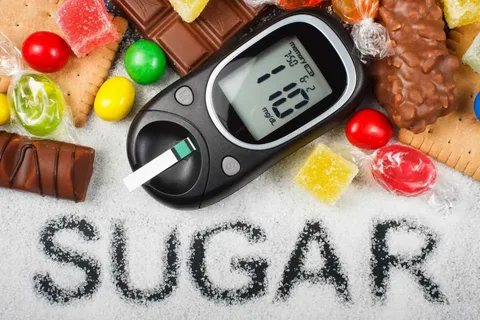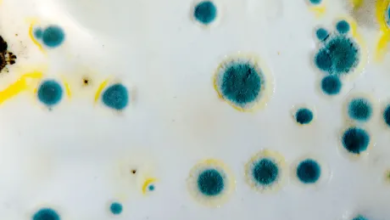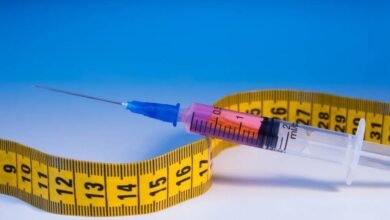
Introduction
Sugar – the sweet temptress that tantalizes our taste buds and energizes our bodies. Yet, in recent years, sugar has been cast as the villain, seemingly implicated in the rise of a global health epidemic – diabetes. In this eye-catching and brilliant blog, we’ll delve deep into the complex link between sugar and diabetes, separating fact from fiction and revealing surprising insights along the way.
Sugar: The Sweet Culprit?
The prevailing notion that sugar is the sole instigator of diabetes is a simplification of a much more intricate narrative. While sugar consumption does contribute to certain forms of diabetes, particularly type 2 diabetes, it’s essential to recognize that this connection is multifaceted.
Types of Diabetes
Type 1 Diabetes: This form of diabetes is an autoimmune condition in which the body’s immune system mistakenly attacks and destroys the insulin-producing cells in the pancreas. There is no direct link between sugar intake and type 1 diabetes. Instead, genetics and other factors come into play.
Type 2 Diabetes: This is the type of diabetes most commonly associated with sugar consumption. However, it’s important to understand that type 2 diabetes is a complex interplay of genetics, lifestyle choices, and obesity, with sugar being just one contributing factor. Excessive sugar consumption can lead to obesity, which is a significant risk factor for type 2 diabetes.
Sugar: Not All Sweetness Is Created Equal
To truly grasp the sugar-diabetes connection, we must differentiate between natural sugars found in fruits, vegetables, and dairy products and added sugars lurking in processed foods and sugary beverages. The former often comes bundled with essential nutrients, fibre, and antioxidants, which can mitigate their impact on blood sugar levels. Added sugars, on the other hand, offer little more than empty calories and pose a much greater risk to health.
The Pitfalls of Elimination
Another myth we must dispel is that completely eliminating sugar from your diet will miraculously cure or prevent diabetes. While reducing added sugar intake can undoubtedly benefit blood sugar control, it’s not a magic bullet. Managing and treating diabetes requires a holistic approach, including dietary changes, exercise, weight management, and, in some cases, medication.
Navigating Artificial Sweeteners
Artificial sweeteners are often touted as a safe haven for those with diabetes. However, these sugar substitutes are not without controversy. There are concerns about their long-term effects on health, including potential metabolic changes and impacts on gut bacteria. People with diabetes should use artificial sweeteners with caution and in consultation with healthcare professionals.
The link between sugar and diabetes is indeed a complex and multifaceted one. While sugar can play a role, it’s not the sole culprit, and not all sugars are created equal. Diabetes is influenced by a myriad of factors, including genetics, lifestyle choices, and overall health.
Rather than vilifying sugar or subscribing to oversimplified myths, it’s crucial to embrace a holistic approach to health. This involves maintaining a balanced diet, regular physical activity, diligent monitoring of blood sugar levels, and working closely with healthcare professionals to manage diabetes effectively. By unravelling the intricate web of the sugar-diabetes relationship, we empower ourselves to make informed decisions about our health and well-being. Sweet success in the battle against diabetes lies in understanding the bigger picture.
Conclusion
Remember that diabetes is a complex condition, and individual responses to sugar and dietary choices can vary. It’s always a good idea to consult with healthcare professionals and registered dietitians to create a tailored diabetes management plan that suits your unique needs and circumstances.
FAQs
Q: Is sugar the primary cause of diabetes?
A: No, sugar is not the primary cause of diabetes. While excessive sugar consumption can contribute to type 2 diabetes, this condition is influenced by various factors, including genetics, lifestyle choices, and obesity. Type 1 diabetes, on the other hand, has no direct link to sugar intake as it is an autoimmune disease.
Q: What’s the difference between natural sugars and added sugars?
A: Natural sugars are found in foods like fruits, vegetables, and dairy products, often accompanied by essential nutrients, fibre, and antioxidants. Added sugars, on the other hand, are found in processed foods and sugary beverages, providing empty calories with little nutritional value.
Q: Can eliminating sugar cure diabetes?
A: No, eliminating sugar alone cannot cure diabetes. Diabetes management and treatment require a holistic approach, including dietary changes, regular exercise, weight management, and, in some cases, medication or insulin therapy.
Q: Are artificial sweeteners a safe alternative for people with diabetes?
A: Artificial sweeteners can be a tool for managing blood sugar levels, but they are not without controversy. There are concerns about their long-term effects on health, and it’s advisable for individuals with diabetes to use them cautiously and consult with healthcare professionals.
Q: Can I still enjoy sweet treats if I have diabetes?
A: Yes, it’s possible to enjoy sweet treats in moderation when you have diabetes. It’s important to monitor your blood sugar levels, make informed choices, and consider alternatives like fruit or sugar substitutes. Consulting with a registered dietitian can help you create a balanced meal plan.
Q: How can I reduce my risk of developing type 2 diabetes?
A: Reducing your risk of type 2 diabetes involves maintaining a healthy weight, adopting a balanced diet rich in whole foods, staying physically active, managing stress, and getting regular check-ups to monitor your blood sugar levels.
Q: Can sugar consumption lead to type 1 diabetes?
A: No, sugar consumption does not lead to type 1 diabetes. Type 1 diabetes is an autoimmune condition where the immune system mistakenly attacks and destroys insulin-producing cells in the pancreas. It is primarily influenced by genetics and immune system factors.
Q: What is the role of genetics in diabetes?
A: Genetics can play a significant role in the development of diabetes. Both type 1 and type 2 diabetes have genetic components, and individuals with a family history of diabetes may have a higher risk.
Q: How can I make informed dietary choices to manage my diabetes?
A: To make informed dietary choices for diabetes management, consider consulting with a registered dietitian who can help you create a personalized meal plan. Focus on portion control, balanced meals, and monitoring your blood sugar levels regularly.
Q: Is it possible to reverse type 2 diabetes through lifestyle changes?
A: Yes, in some cases, type 2 diabetes can be reversed or effectively managed through lifestyle changes, including weight loss, regular exercise, and dietary improvements. However, this varies from person to person, and medical guidance is essential.
For more articles like this, click here.


